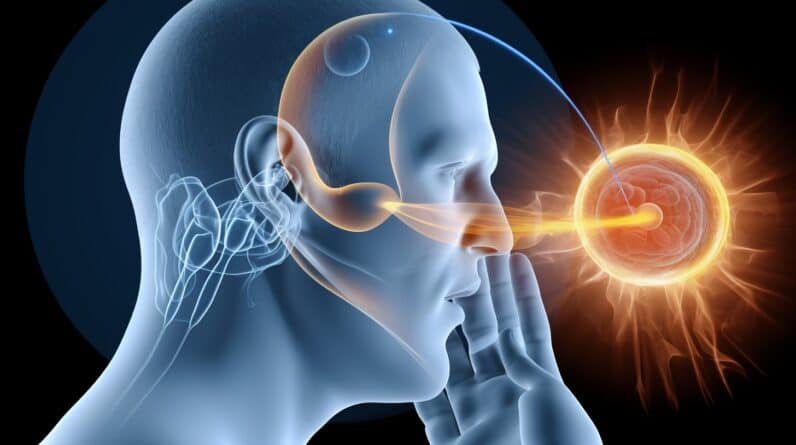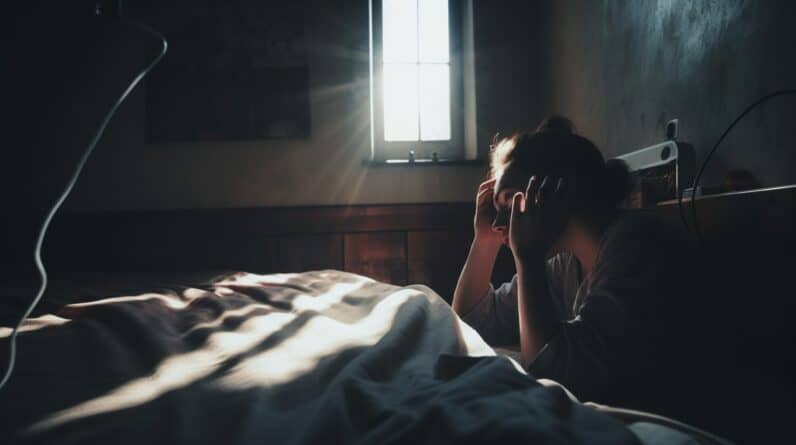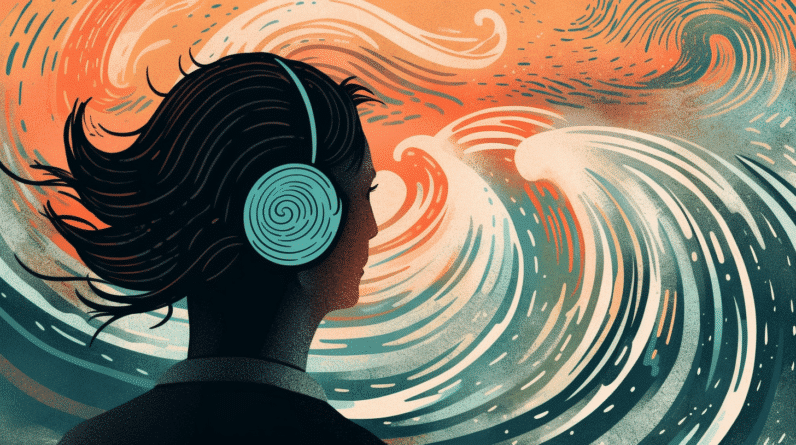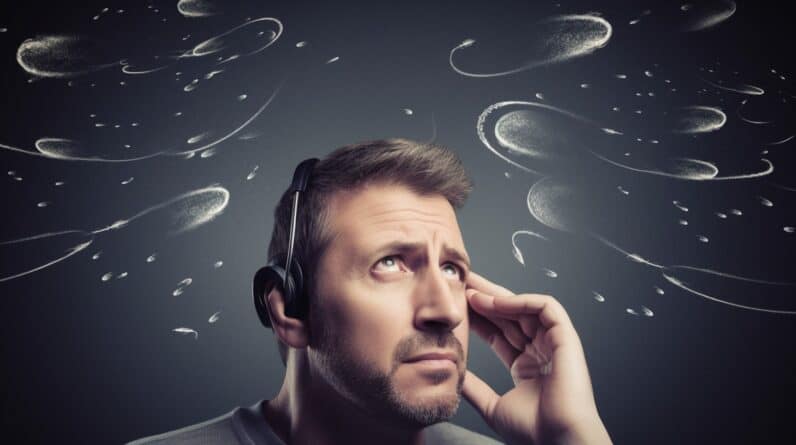
We may earn money or products from the companies mentioned in this post.
As an Amazon Associate I earn from qualifying purchases.
Everyone has experienced a sneeze, but have you ever noticed a ringing in your ears afterward? While it might seem strange or even alarming, ear ringing after sneezing is a common issue. In this article, we will delve into the possible causes, symptoms, and treatments associated with ear ringing after sneezing. Read on to find out if this phenomenon is harmless or a sign of a more serious underlying problem.
What Causes Ear Ringing After Sneezing?
There are several potential reasons for ear ringing after sneezing. Let’s explore these factors one by one.
- Pressure changes in the middle ear: When you sneeze, the pressure in your middle ear can change due to the forceful expulsion of air. This pressure change can cause a temporary ringing sensation in the ear.
- Eustachian tube dysfunction: The Eustachian tubes connect the middle ear to the back of the nose. They help regulate air pressure and drain fluid from the middle ear. Sneezing can cause a temporary blockage of the Eustachian tubes, leading to ear ringing. In some cases, frequent sneezing may cause chronic Eustachian tube dysfunction, exacerbating the ear ringing sensation.
- Temporary shift in inner ear fluid: The inner ear contains fluid that helps with balance and hearing. A forceful sneeze can cause a temporary shift in the fluid, resulting in ear ringing.
- Tinnitus after sneezing: In some cases, ear ringing after sneezing may be related to tinnitus, a condition characterized by persistent ringing or buzzing in the ears. Sneezing can temporarily worsen tinnitus symptoms in some individuals.
Common Symptoms Associated With Ear Ringing After Sneezing
Here are some common symptoms that may accompany ear ringing after sneezing:
- Temporary ringing or buzzing sound in the ear: As mentioned earlier, the most common symptom is a temporary ringing or buzzing sensation in the affected ear.
- Feeling of fullness or pressure in the ear: Sneezing can cause a sensation of fullness or pressure in the ear due to changes in air pressure or temporary blockage of the Eustachian tubes.
- Decreased hearing for a short duration: Some people may experience a temporary decrease in hearing after sneezing, which usually resolves within a few minutes.
- Mild dizziness: In rare cases, sneezing might cause mild dizziness due to temporary shifts in the inner ear fluid or pressure changes in the middle ear.
Usually, these symptoms are transient and disappear within a short time. However, if they persist or worsen, it is essential to consult a healthcare professional.
When To Consult A Doctor
Though ear ringing after sneezing is generally a transient issue, it’s essential to know when it’s necessary to seek medical advice. Here are some situations when it’s crucial to consult a doctor:
- Persistent ear ringing: If the ringing sensation in your ear lasts for an extended period or occurs frequently, it could indicate an underlying issue, such as chronic tinnitus. Consult with a healthcare professional to determine the cause and appropriate treatment.
- Severe or worsening pain: If you experience severe or worsening pain in your ear after sneezing, it could indicate an infection, inflammation, or injury. Seek medical assistance to address the issue.
- Dizziness, vertigo, or balance issues: Dizziness or balance problems coinciding with ear ringing can signal a more concerning issue, such as an inner ear disorder. It’s crucial to consult a doctor to identify the cause and implement proper treatment.
- Hearing loss: If you experience hearing loss in conjunction with ear ringing after sneezing, it’s essential to seek professional help. Hearing loss can be a symptom of various underlying health conditions and should be addressed promptly.
How To Prevent Ear Ringing After Sneezing
Now that you know when to consult a doctor, let’s explore some preventive measures you can take to reduce the chances of experiencing ear ringing after sneezing:
- Pinch your nose and close your mouth while sneezing: By pinching your nose and closing your mouth, you can help prevent sudden changes in ear pressure and reduce the likelihood of ear ringing.
- Chew gum or yawn to open the Eustachian tubes: Chewing gum or yawning can help promote the opening of your Eustachian tubes, thereby reducing the chances of experiencing ear ringing after sneezing.
- Stay well-hydrated to maintain proper inner ear fluid levels: Drinking plenty of water can help maintain appropriate inner ear fluid levels, mitigating the risk of ear ringing after sneezing.
- Manage allergies to reduce sneezing frequency: Allergies can trigger excessive sneezing and increase the likelihood of ear ringing. Addressing your allergies with the help of a healthcare professional can help prevent sneezing-related ear ringing.
Treatment Options For Ear Ringing After Sneezing
While preventative measures can help reduce the chances of experiencing ear ringing after sneezing, certain treatments can be beneficial for those with persistent issues. Here are some treatment options to consider, particularly for individuals with tinnitus:
- Tinnitus retraining therapy: This approach focuses on retraining the brain to perceive tinnitus sounds as insignificant background noise, making them less bothersome. Patients undergo counseling and wear sound generator devices to help them adjust to the constant ringing sounds.
- Cognitive-behavioral therapy: CBT aims to help individuals change their thought patterns and emotional responses to tinnitus. This approach can help reduce the disruptive effects of tinnitus on daily life and improve overall well-being.
- Sound therapy: Also known as sound masking or sound enrichment, this method involves using external sounds, such as white noise, pink noise, or nature sounds, to help reduce the perception of tinnitus.
- Medications, such as flavonoids and over-the-counter options: Flavonoids are antioxidant compounds that may help alleviate tinnitus symptoms. Over-the-counter medications like ibuprofen or acetaminophen can offer temporary relief for those experiencing pain or inflammation alongside ear ringing.
- Ear ringing after sneezing: It’s essential to address the specific cause of your ear ringing, particularly if it’s associated with sneezing. Consult a healthcare professional for personalized guidance on the best treatment approach for your situation.
Conclusion
To sum up, ear ringing after sneezing can be a common and temporary occurrence caused by pressure changes, Eustachian tube dysfunction, or shifts in inner ear fluid. While it may be uncomfortable, it is typically harmless and short-lived. Preventative measures like pinching your nose, chewing gum, staying hydrated, and managing allergies can help reduce the likelihood of experiencing ear ringing after sneezing. However, if you encounter persistent ear ringing, worsening pain, dizziness, or hearing loss, be sure to consult a doctor. Various treatment options, such as tinnitus retraining therapy, cognitive-behavioral therapy, sound therapy, and medications, can aid in managing persistent ear ringing issues. Remember, seeking medical advice to address persistent or worsening symptoms is vital for maintaining your overall ear health.
Ear Ringing After Sneezing - Frequently Asked Questions
Ear ringing after sneezing can be caused by pressure changes in the middle ear, Eustachian tube dysfunction, temporary shifts in inner ear fluid, and tinnitus triggering or worsening due to sneezing. In most cases, this phenomenon is temporary and harmless.
Usually, ear ringing after sneezing is a benign occurrence and does not indicate a serious issue. However, if the ear ringing persists, worsens, or comes along with other symptoms such as pain, dizziness, or hearing loss, it’s essential to consult a healthcare professional to identify any potential underlying problems.
To prevent ear ringing after sneezing, you can pinch your nose and close your mouth while sneezing, chew gum or yawn to open your Eustachian tubes, stay well-hydrated to maintain proper inner ear fluid levels, and manage allergies to reduce sneezing frequency
You should see a doctor for ear ringing after sneezing if the ringing sensation in your ear persists, you experience severe or worsening pain, feel dizziness, vertigo, or balance issues, or notice hearing loss. These symptoms may indicate a more concerning issue that requires medical attention.
Some treatment options for ear ringing after sneezing include tinnitus retraining therapy, cognitive-behavioral therapy, sound therapy, and medications such as flavonoids and over-the-counter options. Consult a healthcare professional for personalized guidance on the best treatment approach for your specific situation.
Amazon and the Amazon logo are trademarks of Amazon.com, Inc, or its affiliates.
Related posts:
- Unlocking the Secrets of Ear Pain and Ringing: Comprehensive Guide to Causes, Symptoms, and Breakthrough Relief Strategies
- Tinnitus Unmasked: Why Your Ear Has Been Ringing for Hours and How to Silence It
- Ear Ringing and Ear Pain: Your Ultimate Guide to Diagnosis and Treatment
- Unraveling the Mystery: Why Your Ear Feels Full and Rings








